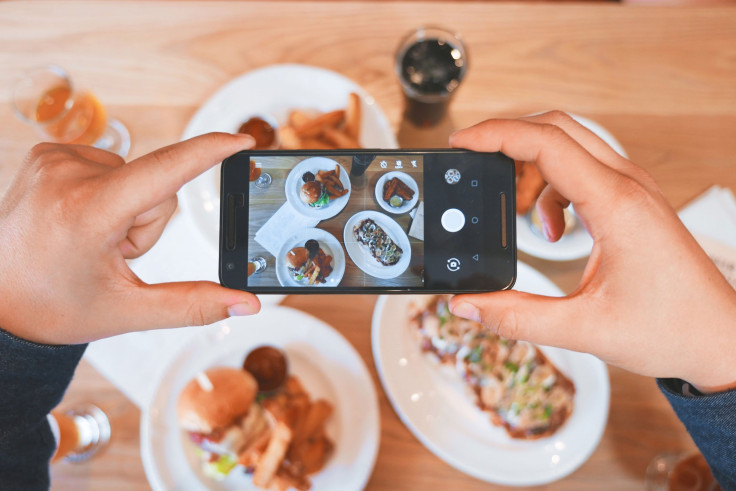Diet Success Tips Using Social Media: 4 Ways Your Social Network Can Help You Lose Weight

We scroll through our newsfeed on social media sites like Facebook, Twitter, and Instagram to catch up with friends and family. We spot the occasional gym check-ins, gym selfies, and status updates about going on a diet. Now, a new study suggests using social media can lead to successful weight loss.
“We see that those who are more successful at sticking to their daily dieting goals express more positive sentiments and have a greater sense of achievement in their social interactions,” said Munmun De Choudhury, assistant professor at Georgia Institute of Technology and lead researcher, in a statement. The study will be presented at the 20th ACM Conference on Computer-Supported Cooperative Work and Social Computing in Portland, Oregon.
Read More: Weight Loss Social Networks May Help End Global Obesity
Previous research has found personal interactions can affect our health. The people in our social network can be good, or bad medicine as ideas and habits influence our health for better or for worse. For example, if we have a friend who became obese, the chance we would become obese rose by 57 percent. Researchers suspect obesity spreads through the influence of our social network, and what people within our circle perceive as normal and acceptable.
To investigate the relationship between social media use and weight loss, De Choudhury and her colleagues analyzed public data from users who have chosen to connect the calorie-counting app MyFitnessPal (MFP) and their Twitter accounts. They examined more than 2 million tweets and 100,000 daily MFP entries from about 700 individuals. Qualified users were identified via Twitter's official streaming API by searching publicly shared posts with the hashtag "#myfitnesspal" that contained an embedded link.
The findings revealed there's an association between people's tweets and whether or not they were reaching the calorie goals they set on the app. Positive tweets were tied to diet success among users. “Train smart like a trainer…win like 6 time champion [sic],” or “If you're not failing you're not trying hard enough…[sic],” were some examples of the upbeat and self-reflective language of successful diet stories. Not all tweets were related to fitness and dieting; some included hashtags like "#blessed" and "#enjoythemoment."
Moreover, these dieters were more focused on health and fitness, and were more socially interactive. They were much more likely to share healthy recipes, offer tips on nutrition and exercise, and report on their own progress. Their social network also included increased engagement, which meant they have stronger support systems, influencing the likelihood of following the diet.
Tweets of unsuccessful weight loss hopefuls had a negative tone, and tend to be more uneasy and fearful in their posts. Posts like “I’m pretty sure I’m going to lose my mind. Completely lose what little is left. I cry at the thought of stupid things…” and “Feel rough as old boots this morning :/ Ankle hurts, shin hurts, chest hurts, head hurts" were commonly shared among these participants.
De Choudhury explains: “These users tend to be more anxious seemingly because of a lack of emotional control, and because of certain activities and events of daily life."
Read More: Is Social Media Bad For Your Health?
Although social media has been linked to unhealthy body image, the researchers suggest this analytical method could be used to encourage better health and wellbeing. Using social media regularly to post images or status updates about your diet can also be a method to hold ourselves accountable. We're more inclined to live up to what we share on social media, and therefore set expectations for ourselves.
Here are three other effects social media has on weight loss efforts.
Holds You Accountable
Writing a post on social media about your diet plans can increase your chance of success. A study from the Dominican University of California found sharing your goals with a friend predicts the likelihood of achieving it. A total of 70 percent of participants who reported their progress to a friend each week completed their goals, compared to 35 percent who kept it to themselves. Social media can give us our own set of cheerleaders that will root for us to achieve our goals.
Keeps Track Of Diet
Using apps like MFP are a great way to help us keep track of our food intake while we diet. It increases our mental awareness of what we're eating. A study by Kaiser Permanente for Health Research found those who keep a food diary may lose twice as much weight. The more food records people kept, the more weight they lost. Simply writing down what we eat, like a blog, can encourage us to consume fewer calories.
Boosts Self-Esteem
Taking a few gym selfies and posting them on Facebook can positively impact your self-esteem. A study by Cornell University found feedback from friends posted publicly on our Facebook wall tends to be overwhelmingly positive, boosting self-esteem. Compared to people who only looked in the mirror, those who used Facebook received much more positive feedback about themselves.
Source: De Choudhury M, Kumar M, and Weber I. Computational Approaches Toward Integrating Quantified Self Sensing and Social Media. Proceedings of the 2017 ACM Conference on Computer Supported Cooperative Work and Social Computing. 2017.
See Also:



























